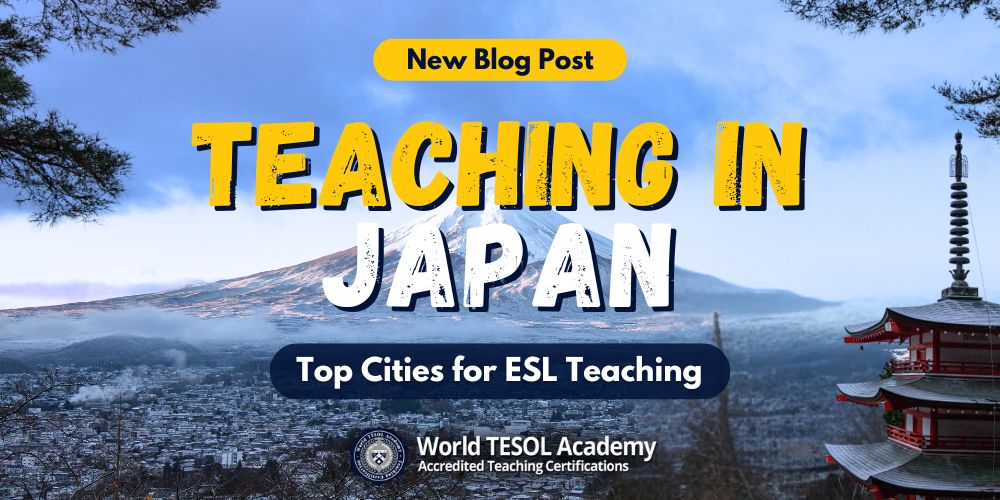
Top Cities for ESL Teaching in Japan
Embarking on an English teaching journey in Japan offers ESL educators the chance to immerse themselves in a country renowned for its unique blend of rich history and modern living.
Known for its commitment to quality education, Japan provides ESL teachers with a wide range of job opportunities, making it an ideal destination for both career growth and cultural exploration. From the bustling metropolis of Tokyo to the historic charm of Kyoto and the vibrant energy of Osaka, Japan’s top cities each offer unique experiences and professional prospects for English teachers.
Let’s explore the top cities you should consider when launching a teaching career in Japan!
Tokyo — The dynamic capital
Tokyo, the heart of Japan’s political, and economic activities, is a dazzling metropolis that combines the deep traditions with modern living. The city is an epicenter for innovation and tradition, where ancient temples sit beside towering skyscrapers.
Teaching opportunities
As Japan’s capital and largest city, Tokyo is the heart of the country’s ESL industry. The city offers a wide range of teaching opportunities in language schools, international schools, and as ALTs (Assistant Language Teachers) in public schools. Tokyo’s diverse population and status as an international business hub has also created a high demand for English language instruction, especially in business English.
Urban lifestyle
Tokyo is a city that blends the traditional with the ultramodern, from historic temples and gardens to towering skyscrapers and bustling shopping districts like Shibuya and Shinjuku. Tokyo offers an unparalleled urban living experience, with countless dining, shopping, and entertainment options, plus a highly efficient public transportation system.
Osaka — The kitchen of Japan
Osaka, famed for its down-to-earth atmosphere, friendly people, and culinary excellence, is Japan’s third-largest city and a thriving commercial powerhouse that has long been considered the nation’s kitchen. Thanks to its vibrant pulse and status as a commercial hub, Osaka is an ideal destination for teachers seeking an exciting place to live and work.
Teaching opportunities
The city has a strong demand for ESL teachers in a wide array of educational settings, such as public school, language schools and business English centers. This variety of teaching opportunities makes Osaka an ideal choice for educators looking to gain experience in Japan’s vibrant commercial and cultural hub.
Lifestyle and attractions
Osaka is famed for its culinary scene, from street food to high-end dining, particularly its takoyaki (savory grilled octopus dough balls) and okonomiyaki (savory grilled pancake filled with various ingredients). The city also offers various cultural attractions, such as Osaka Castle and Universal Studios Japan, and is known for its lively nightlife and down-to-earth charm.
Kyoto — The cultural heart
Kyoto, the historical and cultural heart of Japan, serves as a living museum of Japan’s traditional culture. With its streets lined with ancient temples and traditional wooden houses, Kyoto offers a profound glimpse into Japan’s past.
Teaching opportunities
Kyoto is the cultural capital of Japan, offering ESL teachers the chance to live and work in the midst of historic temples, traditional tea houses, and stunning gardens. Teaching opportunities in Kyoto often focus on providing conversational English training to students and adults, as well as public school ALT teaching positions.
Cultural immersion
Living in Kyoto is like stepping into another era. Teachers can explore ancient sites like Kinkaku-ji (the Golden Pavilion) and Fushimi Inari Shrine, participate in traditional festivals, and even witness geisha performances in the Gion district. The city’s commitment to preserving its cultural heritage offers a deeply enriching professional and personal experience.
Fukuoka — The gateway to Asia
Fukuoka is a vibrant city known for its gateway status to Asia, offering a mix of urban life and access to nature. Its growth as a cosmopolitan center is strengthened by its closer proximity to other Asian countries, attracting a diverse population.
Teaching jobs
Fukuoka is an emerging center of education and business, rapidly gaining popularity among ESL teachers due to its lower cost of living compared to other major Japanese cities. Its proximity to other Asian countries has created a growing demand for ESL teachers in both public schools and private language academies, which focus on business communication and everyday conversational skills.
Relaxing coastal lifestyle
Fukuoka is known for a more laid-back vibe compared to Japan’s other large cities. Boasting beautiful parks and beaches, this compact and easy-to-navigate city offers a friendly and welcoming atmosphere, making it easy for ESL teachers to adjust and feel at home.
Sapporo — The northern star
Sapporo, the capital of Hokkaido, is famous for its refreshing climate, snow-covered winters, and the annual Sapporo Snow Festival, one of Japan’s most popular winter events. The city offers a unique blend of urban modernity and beautiful natural landscapes.
Teaching jobs
Seasonal fluctuations in tourism create varied teaching opportunities in Sapporo, especially in language schools focused on the hospitality industry and business English. Similar to other major cities in Japan, ESL teachers in Sapporo can also pursue ALT positions in public schools, which offer excellent benefits.
Lifestyle and attractions:
In Sapporo, ESL teachers can enjoy a unique blend of seasonal activities. Winter brings world-class skiing and snowboarding, ideal for adventurous spirits, while the summer months offer vibrant cultural exploration like the Sapporo Summer Festival. This variety offers a wide range of options for engaging in recreational activities and experiencing Japan’s rich cultural heritage firsthand.
Nagoya — The industrial powerhouse
Nagoya is a powerhouse of automotive and technological advancements, known for its significant contributions to Japan’s industrial sector. As Japan’s fourth-largest city, it blends a deep historical heritage with a vibrant, innovative spirit, driving Japan’s future in technology and industry.
Teaching opportunities
In addition to ALT and language academy positions, Nagoya also offers specialized ESL positions, particularly for those who can integrate business English into various important industries. The city’s schools and businesses frequently seek educators who can tailor their lessons to fit technical contexts.
Urban dynamics:
Nagoya offers a modern urban lifestyle with touches of traditional charm. The city provides access to numerous cultural sites, such as Nagoya Castle and the SCMaglev and Railway Park. Located in the heart of Japan, Nagoya’s central position on the Shinkansen (bullet train) line makes it an ideal base for exploring the country, with easy access to Tokyo, Osaka, and Kyoto.

What do you need to teach ESL in Japan?
Starting your ESL teaching career in Japan offers an exciting opportunity to immerse yourself in a rich cultural and educational environment. To ensure a smooth and successful start, it’s essential to have the necessary qualifications and documents.
If you wish to teach in Japan, you should aim to obtain the following qualifications:
🧑🏫 TEFL/TESOL certification: A recognised 120-hour TESOL/TEFL certificate is a core requirement to qualify for most teaching positions.
🎓 Bachelor’s degree: A bachelor’s degree is a strict requirement for obtaining a work visa for teaching in Japan.
👮 Background check: A clean criminal record check is mandatory, especially if you plan on working with children.
🗣️ English proficiency: For non-native English speakers, Japan’s immigration rules generally require that you have at least 12 years of education in which the primary language of instruction was English.
📋 Visa and work permit: Non-Japanese citizens will need a proper work visa to teach legally in Japan. The most common types for ESL teachers are the Instructor Visa for those teaching in public schools, and the Specialist in Humanities/International Services Visa for those teaching in private schools, language institutes, and companies.
By meeting these requirements, you’ll be well-prepared to navigate the Japanese teaching market and embark on a life-changing educational career.
Starting your teaching journey
Japan’s diverse landscapes, blending rich traditions with modern living, provide ESL teachers with a unique environment for both career development and personal exploration. Whether you’re teaching in bustling city centers or peaceful rural areas, you’ll have the chance to pursue a rewarding and meaningful teaching career.
With a recognised TEFL/TESOL certification and a passion for Japanese culture, you’re ready to embark on a memorable teaching journey in one of Asia’s most captivating countries — Japan.
Don’t forget to also check out our JET Programme guide for more details on how to start teaching English in public schools in Japan.
Getting your TESOL/TEFL certificate:
To teach English in Japan, you’ll need to possess an accredited 120-hour TESOL/TEFL certificate.
If you haven’t obtained your certificate yet, you can enroll in our accredited TESOL/TEFL course:
.
If you’d like to learn more about teaching English in Japan, feel free to explore our ESL teaching blog for useful tips and stories from our graduates:
🧑🏫 Teacher stories: Larry teaching in Japan
If you have any questions about our courses and certificates, feel free to contact us via the website live chat or via our contact form.




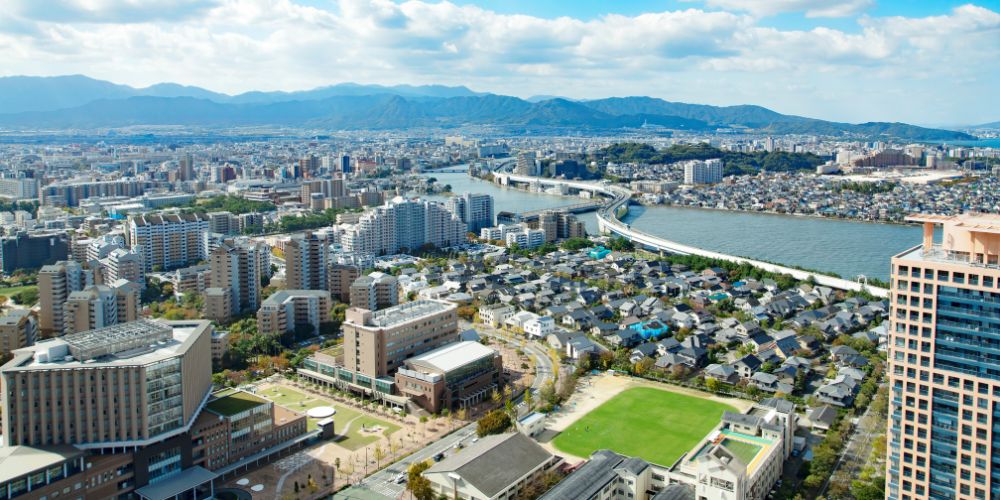
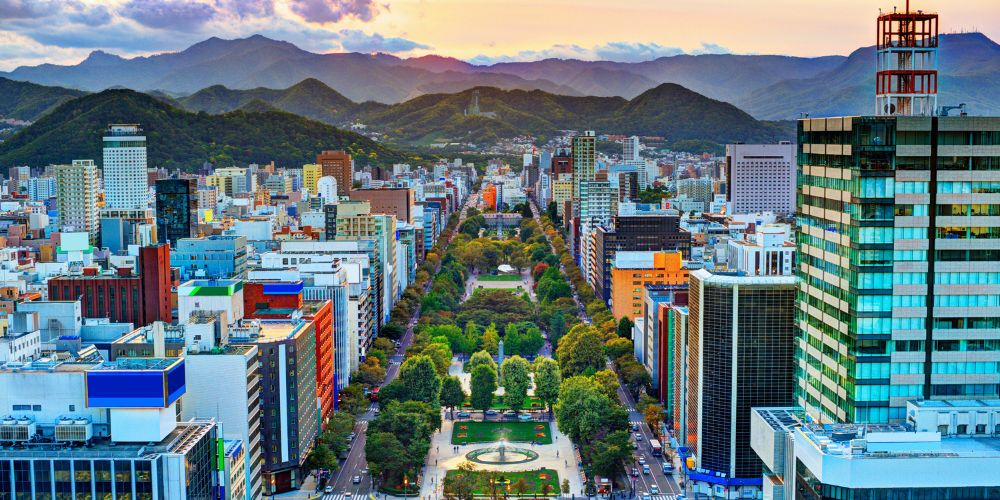
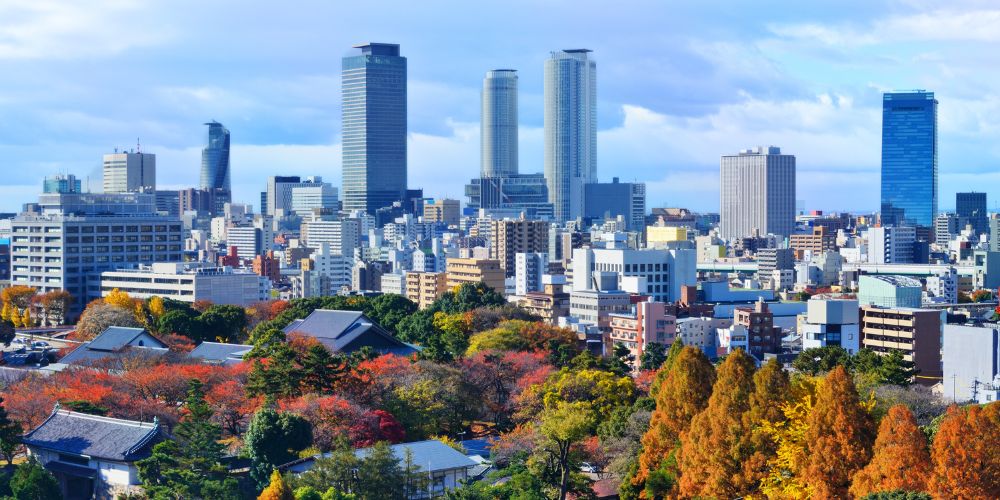
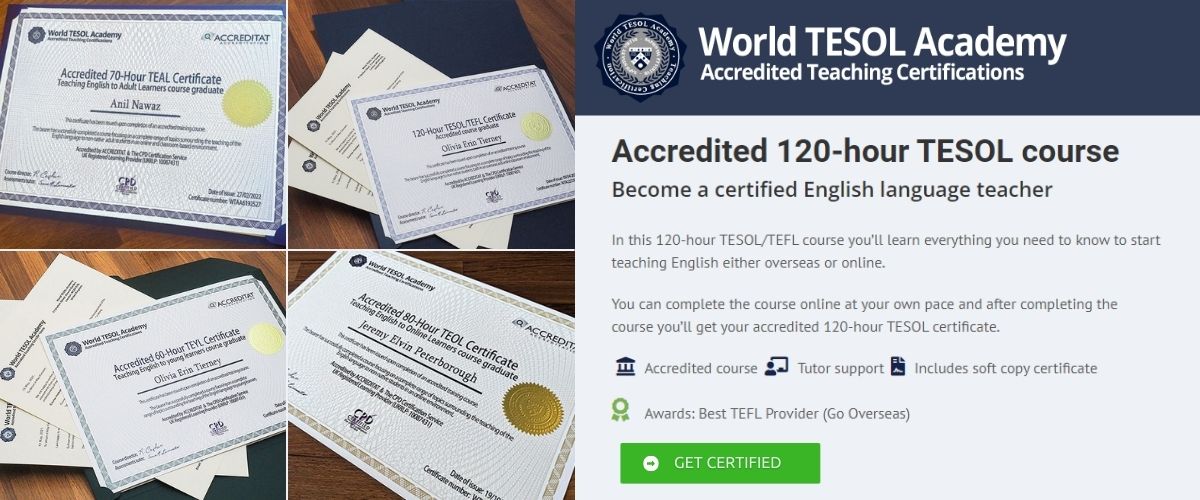



Leave A Comment